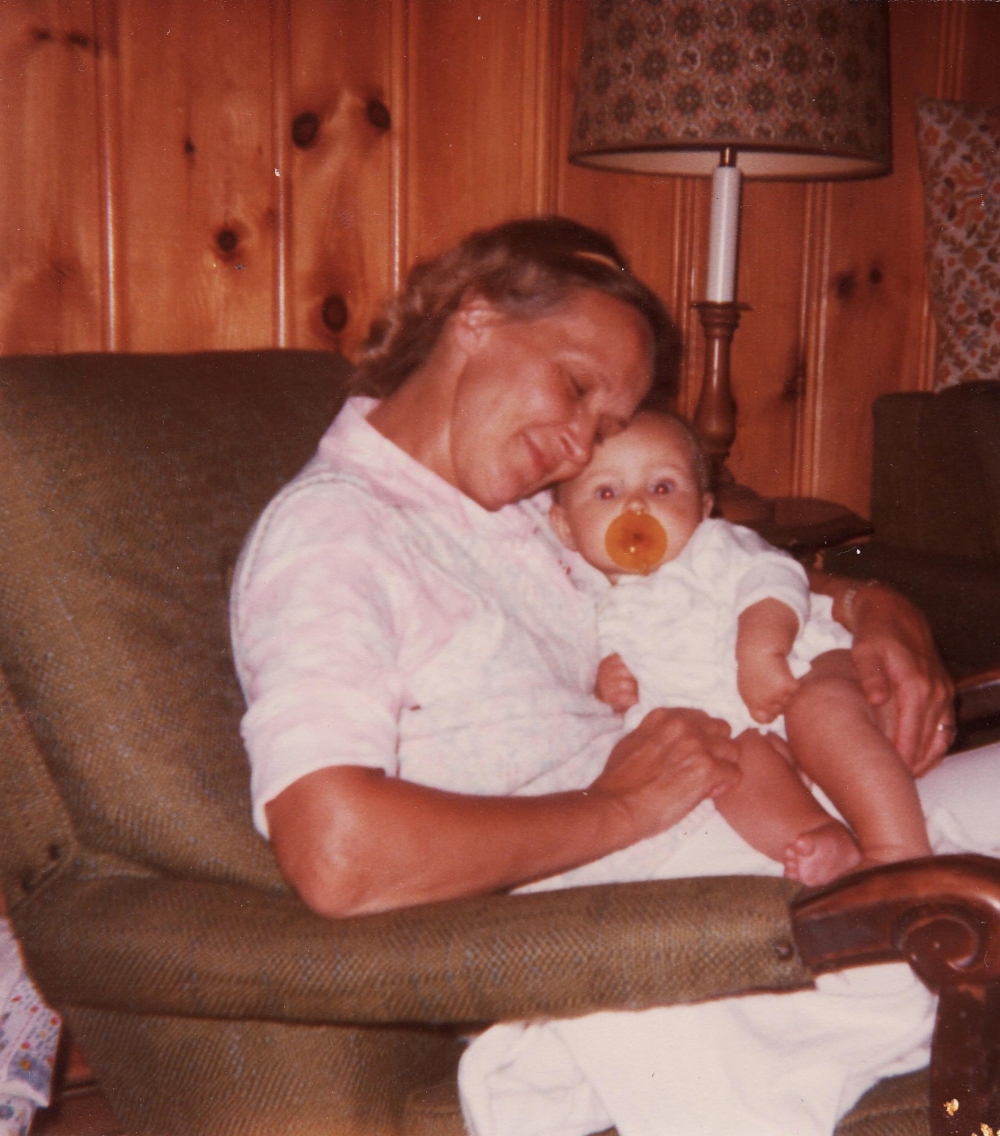I wasn’t expecting that part in the book, nor the flood of emotions it would trigger.
My joy, when the author described the fulfillment of her grandfather’s dying wishes, was mixed with deep sadness.
Thoughts of my own beloved grandmother left alone to die flooded my mind.
Did she suffer? Was she scared? Did she wonder why no one was there?
I would give anything to turn back the hands of time and force a change of fate—for the doctors to tell my aunts this was it, she was on her last breath. And for all of us to rush to her bedside and gather around her one last time.
But I can’t and I’ll never know.
For some reason, as I wiped away my tears, I felt compelled to go on Facebook and look through my memories of that day. And there it was, buried in the comments section of an old post—my grandmother’s beautiful face. Happy tears this time as I savoured each word she had typed to me almost a decade earlier. Showing up, somehow, exactly when I needed it, needed her, the most.
Grieving has been especially hard during this pandemic, when we’ve been separated from family and friends, and robbed of the opportunity to say goodbye. The thought of our loved ones taking their last breath with a stranger or completely alone adds another layer of agony to this already incredibly painful process.
It’s true our loved ones aren’t with us anymore in a physical sense. We can’t reach out and touch them. We can’t feel the warmth of their embrace or hear the soothing sound of their voice. And that hurts like hell.
But they are always with us in our hearts, and in time, it does get better.
Here are a few things that have helped me and my clients move through grief to a place of peace:
1. Honour what you need.
Even before the pandemic, North American society did a poor job of honouring the grieving process and supporting those in mourning. Anxiety of not knowing how to help the bereaved can lead to avoidance. But learning to identify and express their needs to friends and family protected my clients from feeling alone and abandoned, as it took the guesswork out of it for others.
2. Keep conversations about the deceased person alive.
As Sheryl Sandberg describes in her story of loss and resilience “Option B,” often people avoid talking about the deceased for fear of reminding the person of the loss and causing further upset. But usually the opposite is the case. Most of my clients’ healing was supported by the opportunity to reflect on the person and the impact of the relationship.
Looking at pictures and sharing memories is a beautiful way to celebrate the relationship and honour our loved one’s legacy. The goal of healing is not to forget, but to lessen the pain. Talking openly makes room for remembering more of the good.
3. Don’t personalize other people’s judgements.
Some people are not comfortable with expressing vulnerable emotions. They’ve internalized the lie that being emotional is a sign of weakness. Or maybe they don’t feel safe because they were punished or shamed for their own sensitivity.
Either way, our sadness and anger are nothing to feel ashamed of. Some people will not be able to ride the intense waves of grief with us. Perhaps they can offer support in other ways, like making meals or helping to clean. It’s okay to take space from certain people while we’re in the acute phase of grief and feeling so raw.
4. Shift from why questions and self-blame to “what now?”
As human beings, we are wired to make meaning of situations and place blame. But often this prevents us from finding peace with what we can’t ultimately change.
When the mind is pulled into woulda, coulda, shoulda, and if only thoughts, I encourage clients to offer themselves compassion and move into what Dialectical Behavioral Therapy calls “radical acceptance.” When we look at the situation from a bigger context, we can invite the self-blame or anger toward others to soften. This opens us up to move through deeper layers of sadness to a place of acceptance.
Loss is like a domino effect. It can trigger pain from past losses. Be gentle with your heart and reach out for support if it feels overwhelming.
5. Open up to the possibility that our connection to our loved ones never truly ends.
“I know this sounds crazy, but I talk to her every day.”
“You probably don’t believe in that stuff, but I went to see a Medium and she told me he didn’t suffer.”
These are just a few things clients have shared with me. I don’t think it’s crazy. I feel my grandmother’s presence often when I look at her picture or do things that we used to do together. Almost every one of my clients has not hesitated when I’ve asked, what would your loved one say if they were here now? We just know. They are still a part of us.
In many cultures this connection to our ancestors is widely accepted and helps tremendously with the grieving process, and not only in coming to a place of peace, but also a sense of empowerment.
Grief is incredibly painful. But as long as you’re not stuffing away your feelings or staying stuck in regret, with time and gentleness, it gets better.
And, if we believe we are always connected to those we love, we will find them—in our dreams, in a sign, and sometimes even on social media.
~











Read 8 comments and reply